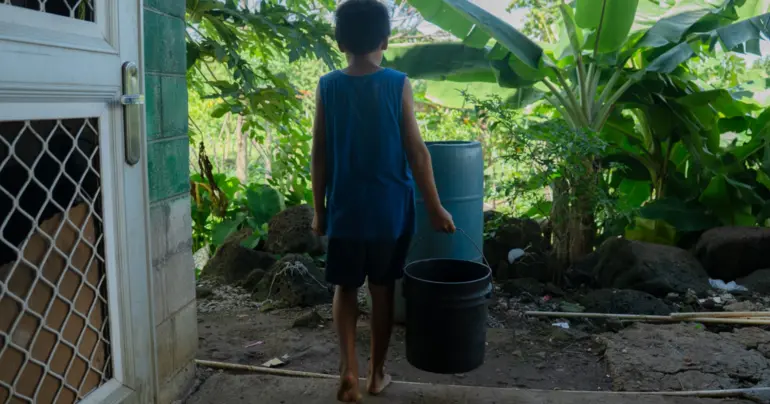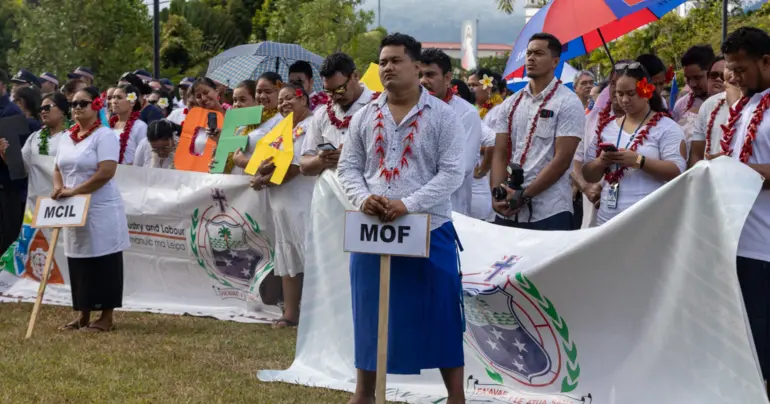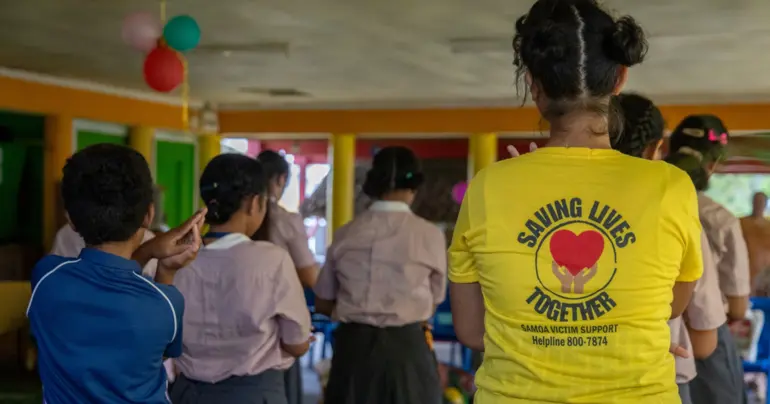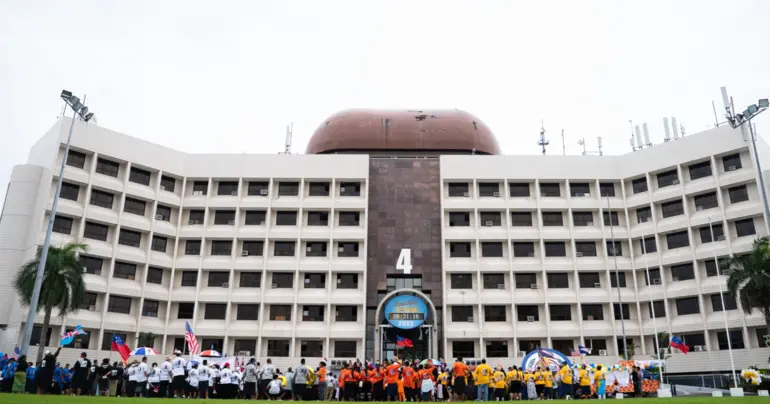Standing together to decide our fate
The head of the United Nations made a whirlwind visit to beautiful Samoa. Nonetheless, Antonio Guterres spoke out aloud about what many have been thinking—the Pacific is for the Pacific.
The economic status of most Pacific island nations has always left us vulnerable to the demands of whom we have always referred to as our development partners. Why wouldn't we? These development partners provide us with the much-needed aid that we lack to advance our budgetary and infrastructure plans.
But does that mean we forget to stand our ground? Mr. Guterres’s message was clear: All Pacific nations, despite their size and economic prowess, need to make a stand, especially when it comes to climate change.
The fact remains that the impact of climate change is being borne by the nations that contributed the least to causing the reactions. Superstorms and extreme weather patterns are being lived each day. The remedy to this lies in the much-needed climate resilience financing, which most Pacific nations do not know when they will be seeing this.
These finances are being provided by the countries behind the impact of climate change but should they come with conditions? Should Pacific nations be forced to bow down to the will of those financing aid and climate funds?
The diplomatic answer from the financiers would be that they do not expect anything, however, the reality is that most aid comes with strings attached. Be it Australia, New Zealand, the United States or China, there is always something.
A classic example is the government’s failure to make submissions for the bill that would give justice to a cohort of Samoans deprived of citizenship rights. The government responded that it was a sovereign matter. That raises the question did the direct budget support and other aid keep the government quiet. The government would say no.
Samoa and other Pacific nations need to have a clear stand on how they perceive geopolitical pressure. A clear stand should be made to let development partners know that aid will not influence the way the nation should be headed.
Mr. Guterres delivered a compelling message of solidarity and urgency regarding the Pacific Islands' struggle against climate change and the challenges of securing adequate climate financing.
He spotlighted the severe predicament faced by Pacific Island countries like Samoa, which, despite their minimal contribution to global greenhouse gas emissions, are disproportionately affected by rising sea levels and altered weather patterns.
He acknowledged the ongoing adversity and the exacerbating impact of these environmental changes on the island nations.
One of the core issues highlighted by Guterres was the difficulty Pacific countries encounter in accessing concessional funding and debt relief from international development finance institutions.
This financial inadequacy, he explained, stalls ambitious sustainability projects and developmental initiatives essential for combating the adverse effects of climate change.
To address this, Guterres called for a comprehensive overhaul of the international finance system, advocating for a significant increase in adaptation funding for nations grappling with the direct consequences of climate change.
He emphasised that the management of Pacific affairs should remain under the purview of its people and should not be overshadowed by geopolitical rivalries.
"The Pacific is best managed by the Pacific islanders and it must never become a forum for geo-strategic competition."
There is a battle amongst the so-called superpowers for dominance in the region. Just look around, aid from all the major players has almost doubled and so has their presence. This will be the case when it comes to climate financing.
A group have allied while another key player is still going on its own. The aid and financing that is being provided surely have strings attached as these nations try and make strategic grounds in the nations they support.
Real help from these nations would include things like visa-free travel and less bureaucratic red tape when it comes to immigration.
Many points can be thrown in this complex debate about sovereignty, geopolitics and climate financing but as Mr. Guterres said, Pacific nations need to stand their ground.
This month the Pacific Island Forum Leaders are meeting. It would be interesting to see if the vision for the Blue Pacific continent still stands or if has been fragmented by geopolitical pressure which has a nasty way of disguising itself in the form of aid and diplomatic presence.
For each Pacific nation to stand on its own, they need to stand united.











